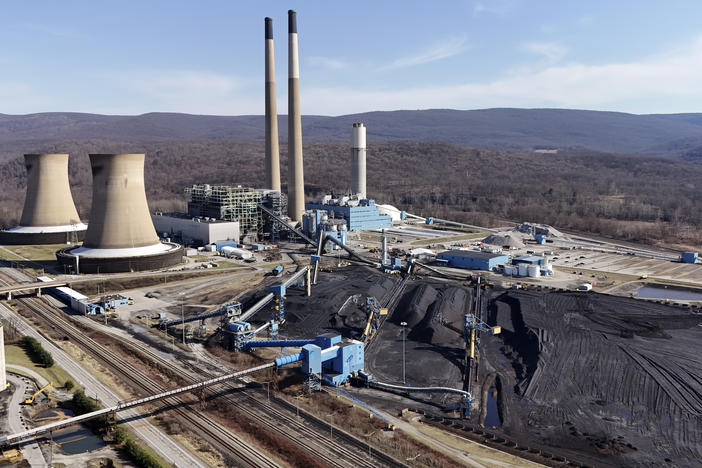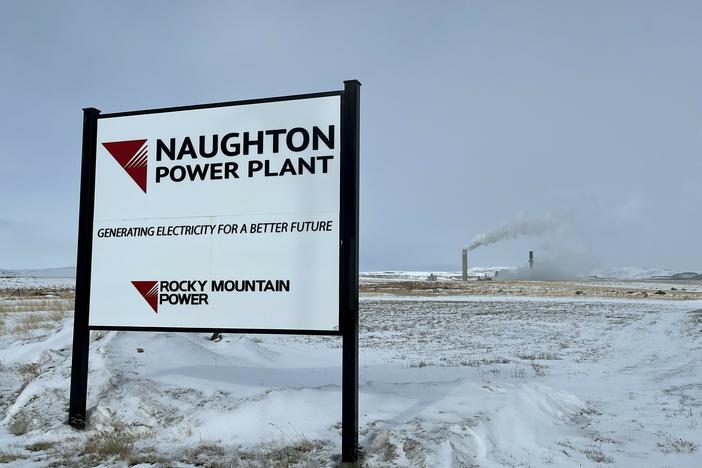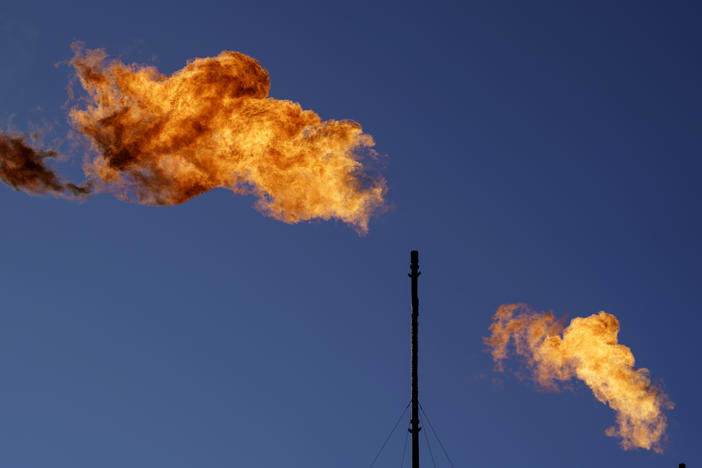Section Branding
Header Content
These companies say their carbon pipelines would curb climate change. Farmers object
Primary Content
The carbon capture pipelines have been proposed through five Midwest states, but activists say proponents' claims of helping the ethanol industry and curbing climate change are wrong.
Transcript
A MARTINEZ, HOST:
The construction of controversial pipeline projects in the Midwest is nothing new. Think Keystone XL or the Dakota Access. Now the development of a different kind of pipeline is setting up a similar conflict in farm country. Three companies want to create carbon capture pipelines. They say the lines will help curb climate change. But as Iowa Public Radio's Clay Masters reports, landowners and some environmentalists are resisting.
CLAY MASTERS, BYLINE: Iowa is the country's top corn producer. And lots of that grain goes to produce ethanol. Three companies want to capture the carbon these plants' smokestacks belch into the air making that fuel and then pipe it to be stored elsewhere.
Chad Hart is an agricultural economist at Iowa State University and says it would go deep underground.
CHAD HART: Either in North Dakota or, in this case, we also see some moving toward southern Illinois, basically where there's land formations, where they have these, like, deeper mines that have open voids that can be filled with carbon dioxide as a way to reduce the amount of carbon being released into the atmosphere and sequester more of it underground.
MASTERS: Hart says as American ethanol consumption levels off, the industry wants to develop a carbon market, especially with federal incentives to cut greenhouse gas emissions.
Emma Schmit works for an environmental group and chairs the local Democratic Party in Calhoun County. She's working to drum up opposition to the pipelines in her rural, reliably Republican part of the state.
EMMA SCHMIT: Everybody across the political spectrum believes in the fact that a private corporation shouldn't be able to take your property for their own benefit without giving anything back.
MASTERS: I'm standing in the rotunda of the Iowa Capitol, where dozens of people have shown up for a kind of public hearing from landowners and environmentalists who are opposed to the carbon pipelines that have been proposed in the state. They're wearing bluejeans and wearing work shirts, mixing with the normal lobbyists and lawmakers in their suits and ties. I see a sign that says no carbon pipeline as well as one that says stop the pipeline. They're here to voice their opinions.
KIM JUNKER: We just want to be heard. You know, this is a property rights issue. We got to start thinking about what we're doing to the rural areas, to land, to farmland. I mean, that's our lifeblood of this state.
MASTERS: That's northeast Iowa farmer Kim Junker, who's resisting the pipeline on her land. Farmers are mainly fighting the potential use of eminent domain. That's where the government can acquire land, deeming it in the public interest. Landowner rights are the main unifying issue in this fight.
But Mark Jacobson, who teaches civil and environmental engineering at Stanford, argues that the bigger issue is American energy production. He says studies show carbon capture systems failing to significantly reduce emissions.
MARK JACOBSON: The real issue is it's not a question of whether we should use ethanol versus gasoline. It's really a question of whether we should use gasoline or ethanol when we have much more efficient vehicles, namely electric vehicles.
MASTERS: Of course, you don't see a lot of electric cars on highways yet here in the Corn Belt. And lawmakers like Congresswoman Cindy Axne of Iowa are continuing to push for increased ethanol production.
CINDY AXNE: Why the heck are we not expanding ethanol year-round across this country. Right now there's a war in - with Russia and Ukraine. We are seeing prices go up at the gas pumps. So let's put our own product out there across the country.
MASTERS: But that product faces a new test with these pipelines as the ethanol industry seeks both a new revenue stream and a way to boost its green credentials. And the fight over the ground under all that corn used to make ethanol is not going away anytime soon.
For NPR News, I'm Clay Masters in Des Moines.
(SOUNDBITE OF BALMORHEA'S "BEHIND THE WORLD") Transcript provided by NPR, Copyright NPR.
Bottom Content



